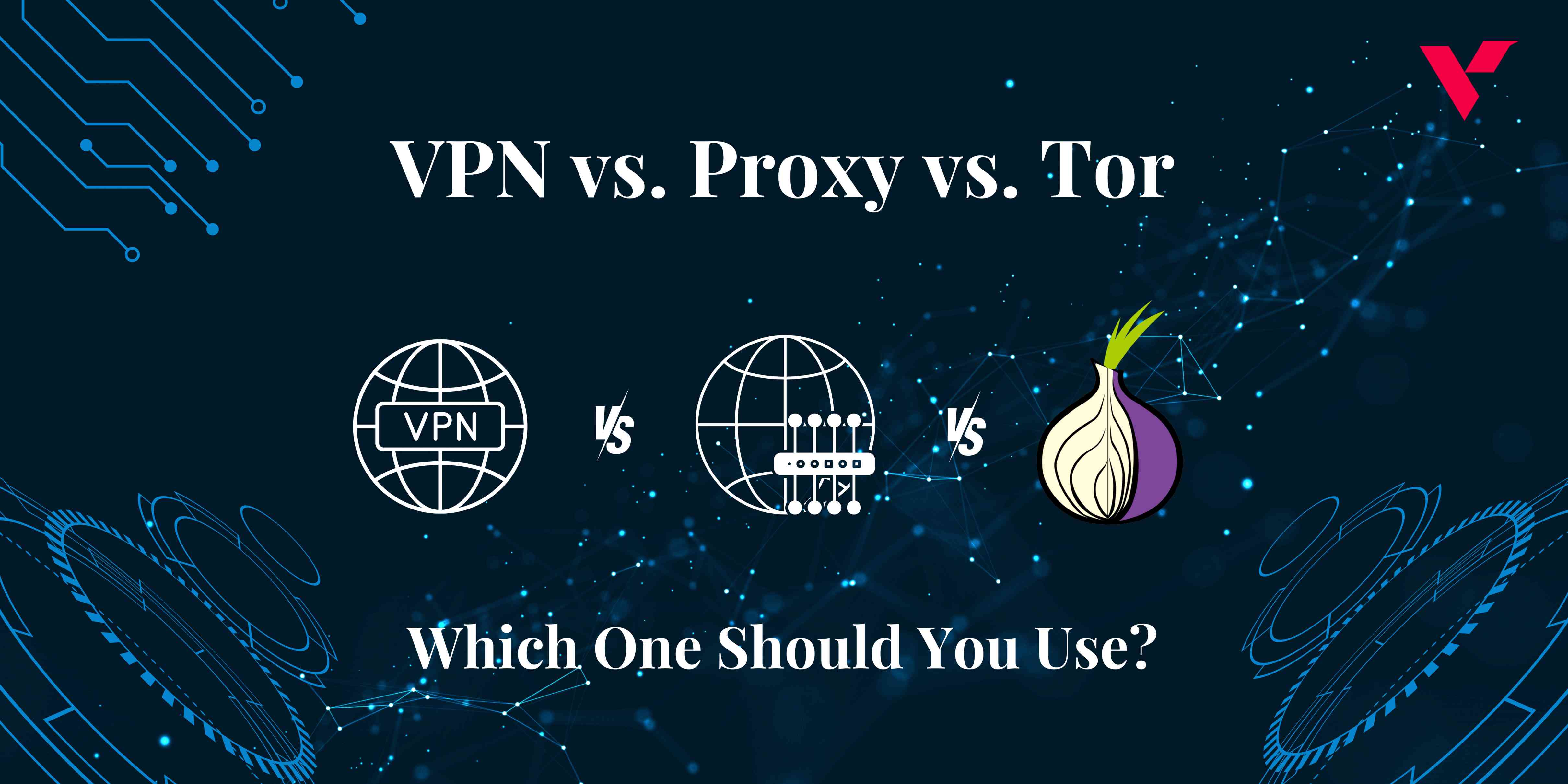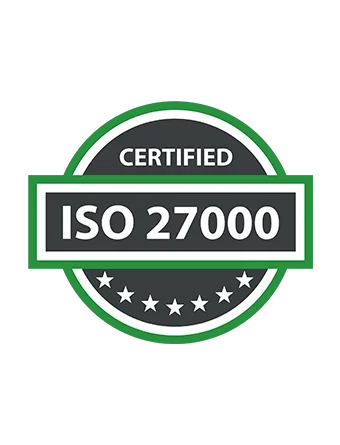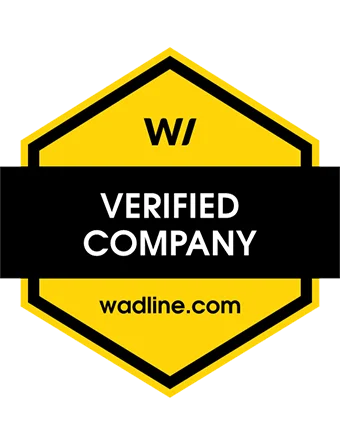Popular Tools by VOCSO
SEO (Search Engine Optimization) has undergone several changes. Today, black-hat practices and keyword-based optimization is not a good idea. New age SEO strategy emphasizes user experience. So far, SEO has proved to be cost-efficient. It also is an effective strategy for business owners across all business verticals.
But despite the success and simplicity of SEO, there exist businesses that get intimidated by it. SEO is a time-consuming strategy, and it does demand attention. But that doesn’t make it difficult or confusing to the extent that it becomes incomprehensible and difficult to operate. Equipped with the correct level of commitment and mentality, every business and entrepreneur can design an SEO campaign, for his/her brand and reap its advantages.
Table of Contents
The misconception
Entrepreneurs and business owners, who are not aware of the technical aspect of web development, might not understand the concept of Google algorithm well. To him/her, the idea that Google changes its algorithms can be an overwhelming aspect. The algorithm is not a very easy process to understand. However, that doesn’t imply that your SEO strategy too will be a difficult and mind-twisting one that is complex to understand and execute. These entrepreneurs and businesses think that new age coding and engineering go into Google algorithm maintenance. Hence, for them, SEO is a complicated process. However, the reality is far from this. SEO is vast but not overly complicated.
SEO basics for anyone to master
Google’s process for estimating search ranks is complex! Also, the search experts can’t comprehend Google every time. The reason is Google too has never given way to its algorithms and the way it works in detail. However, it is essential to cater to two needs for ranking on the top search engine results for a targeted query.
As an experienced SEO professional, I am excited to share with you this comprehensive guide on how to optimize your website’s SEO in 2023. In this guide, we will cover the latest tips and tricks to help you outrank your competitors and get your website found in Google SERPs. Whether you’re new to SEO or looking to take your website to the next level, this guide will provide you with the knowledge and expertise you need to succeed. So, let’s dive in and explore the best practices for optimizing your website’s SEO and staying ahead of the latest trends in 2023.
Top reasons why your website needs SEO Optimization in 2023
1. Craft your website that resonates with your ideal customers
As someone who has been working in SEO and website optimization for a long time, I’ve come to understand the importance of making your website useful for your specific audience. It’s essential to keep in mind that Google’s ultimate goal is to serve up the best possible content for searchers, which is exactly what you should be aiming for, too.
To do this, you need to analyze your specific audience’s behaviors and tailor your website accordingly. One way to achieve this is by focusing on SEO and choosing primary and latent semantic keywords related to search intent. By doing so, you can create content that people love to read and provide meta information to help Google better understand the copy.
However, it’s not just about optimizing for search engines. You also need to optimize your website for conversions by guiding visitors toward a specific goal, such as joining your email list or buying one of your products. This way, you can give your audience exactly what they want and expect.
Optimizing your website for both SEO and conversions simultaneously can help you achieve both goals and establish a positive relationship between your site and the search engines. It’s a win-win situation that can help you grow your organic traffic, capitalize on existing traffic, and give your audience the best possible user experience.
2. SEO is the proven strategy to increase your website’s organic traffic
I can tell you that SEO is a proven strategy to increase your website’s organic traffic. Unlike traditional advertising, SEO can be incredibly cost-effective, especially when you consider the long-term benefits.
Many businesses spend a significant portion of their revenue on advertising, but with SEO, you can attract organic traffic for free. While you do need to invest in creating and promoting high-quality content, it’s not nearly as expensive as pay-per-click advertising.
And the results speak for themselves. According to research, organic search has a close rate of almost 15 percent, while paid search has a close rate of less than 2 percent. This means that if you invest your time and resources into growing your organic traffic, you’re likely to see a much higher return on investment.
While it may take some time to see the results of your SEO efforts, the benefits are well worth it. By focusing on improving your website’s search engine ranking, you’ll attract more targeted traffic, build brand authority, and increase your chances of converting visitors into customers.
So, if you’re looking to increase your website’s traffic and generate more leads and sales, SEO is the way to go. Don’t hesitate to invest your time and resources into growing your organic traffic, and you’ll reap the benefits for years to come.
3. SEO can be the perfect marketing strategy to skyrocket your website’s conversion Rates
I can confidently say that it is one of the most effective marketing strategies out there. When done right, SEO can do wonders for your website’s conversion rates, helping you attract more qualified leads and generate more sales.
The beauty of SEO lies in its ability to target users who are already actively searching for the products or services that you offer. By optimizing your website’s content, structure, and other key elements, you can ensure that your site appears at the top of search engine results pages (SERPs) for the keywords and phrases that your target audience is using.
This, in turn, can help you attract more high-quality traffic to your website, as well as establish your brand as a trusted authority in your industry. By providing visitors with relevant, informative content that answers their questions and addresses their pain points, you can create a strong connection with your audience and encourage them to take action.
Of course, SEO is not a magic solution, and it takes time and effort to see results. However, with the right strategies in place, it can be a highly effective way to skyrocket your website’s conversion rates and achieve long-term success online.
4. SEO provides to Outrank Your Competitors on Google
I can attest to the power of using competitive analysis to boost search rankings and outrank competitors on Google. By analyzing the strengths and weaknesses of your competitors, you can gain valuable insights into what works in your industry and adjust your strategy accordingly.
One effective way to use competitive analysis is to identify your top competitors and evaluate their SEO efforts. This includes analyzing their website content, backlink profile, keyword strategy, and overall search visibility. By understanding what they’re doing well, you can adopt their successful tactics and improve upon them.
Another strategy is to identify gaps in your competitors’ SEO efforts and capitalize on them. This can include targeting keywords they’re not ranking for, creating content that fills a gap in the market, or improving the user experience on your website.
Using competitive analysis to inform your SEO strategy can help you stay ahead of the competition and increase your search rankings. By continuously analyzing your competitors and adjusting your approach, you can ensure that your website is optimized for success in your industry.
5. SEO power moves revolutionize your website’s success
I can tell you that optimizing your website is crucial to make it work harder for you. It’s not enough to have a beautiful website; you need a website that can reliably produce conversions. The average conversion rate across all industries is less than 2.5 percent, which means that if you want your audience to convert at higher rates, you have to study them closely and give them what they need and expect.
To achieve this, you need to start with SEO. Without traffic, you won’t have any conversions. By creating a site with valuable, sticky content and plenty of opportunities for visitors to convert, you’ll attract the right audience to your site. This means that every aspect of your site needs to be optimized, from the layout and design to the content and functionality.
One of the most critical aspects of optimizing your website is making it user-friendly. Visitors should be able to find what they need quickly and easily, without having to navigate through multiple pages or spend too much time searching. According to a recent survey, 88% of online consumers are less likely to return to a site after a bad experience, and 83% of them will tell their friends and family about it.
By optimizing your website, you can ensure that your visitors have a positive experience on your site and are more likely to return. This can lead to increased engagement, longer session durations, and more page views, all of which can lead to higher conversion rates.
For example, if you run an e-commerce website, optimizing your product pages can make a significant difference in your conversion rates. By including high-quality product images, detailed descriptions, and user reviews, you can provide the information that your customers need to make an informed purchasing decision. This can increase their trust in your brand and lead to higher sales. If you want to rank your e-commerce store then you must check out this comprehensive checklist for eCommerce SEO and eCommerce SEO best practices.
In summary, optimizing your website is essential to making it work harder for you. By focusing on SEO and user-friendliness, you can attract the right audience to your site, provide them with what they need and expect, and increase your conversion rates.
6. Trackable Results:
With tools like Google Analytics, Google Search Console, and other best tools for SEO, you can track the results of your SEO efforts. This allows you to see which keywords are driving traffic to your website, which pages are most popular, and how visitors are interacting with your website. By tracking your results, you can make data-driven decisions to improve your SEO strategy.
If you’re interested in pursuing a career in digital marketing, you may want to consider getting an MBA in Digital Marketing. Check out this guide on pursuing an MBA in Digital Marketing to learn more about the benefits and top programs in India. This blog list provides a detailed overview of their curriculum, admission requirements, and costs.
This course overview:
- Understanding SEO: The Power Behind Search Engines
- Conducting Keyword Research: Finding the Right Words to Target
- On-Page Optimization: Optimizing your Website for Search Engines
- Off-Page Optimization: Building your Website’s Authority
- Technical SEO: Optimizing your Website’s Structure
- Measuring Your Success: Analyzing your SEO Efforts
How to optimize your website for search engines in 2023
1. Analyze all of your website data to take data-driven decisions
As per my recommendation, website data is one of the most important steps in optimizing for SEO. It’s not just about tracking clicks and impressions, it’s about understanding user behavior and how they interact with your website.
By collecting and analyzing data, you can identify patterns that provide insights into how users engage with your site. For instance, if a high percentage of users are ignoring your call-to-action (CTA), it’s a clear indication that there’s a problem that needs to be addressed.
User behavior reports and Google Search Console data are excellent sources of information that can help you understand how users engage with your website. User behavior reports, for example, reveal how users behave once they land on your site, while GSC tracks key metrics like the number of sessions, bounce rate, and more.
When analyzing your data, pay close attention to specific patterns, such as referral sources. By understanding how people are finding your site, you can make informed decisions about where to focus your SEO efforts. Additionally, identify pages that are performing well and replicate their success across your site to improve your overall SEO strategy.
2. Unlocking the power of keywords to conduct effective research for your website
In today’s competitive online world, simply using a keyword out of thin air won’t make your website rank higher in search engine results. As an experienced SEO specialist, I recommend using the best keyword research tools like Google Keyword Planner, SEMrush, and Ubersuggest to do keyword research. This will help you find keywords that are related to your business and niche. By using long-tail keywords that match the user intent of your prospective customers, you can attract a specific audience.
To get started with keyword research, begin with a broad keyword that describes your business or offering. For example, if you offer dog boarding services, start with a keyword like “dog kennels” and use Ubersuggest to generate a list of related keywords that match your business.
Once you have a list of related keywords, filter them to find long-tail keywords that match your business and that your audience is searching for. Use these long-tail keywords to create long, in-depth articles that provide as much information as possible on the topic.
Remember, always conduct thorough keyword research to optimize your website for SEO and attract more targeted traffic. By doing this consistently, you’ll be able to increase your website’s visibility in search engine results and attract more potential customers to your site.
3. The Power of Long-form Content
Quality and informative log forms can give your SEO content wings. While shorter articles and blog posts may have their place, there is something to be said for providing your audience with a comprehensive, in-depth look at a particular topic. Not only does this give your readers more value, but it can also help you stand out in a crowded field.
According to Buffer, the ideal length for a blog post is around 1,600 words. However, this is just a starting point. It’s important to do your research and see what’s working for your competitors in the SERPs. If the top-ranking pages for your primary keyword are longer than 1,600 words, then you should consider making your content longer as well.
Of course, length isn’t the only factor to consider when creating long-form content. You also need to make sure that your content is valuable and informative. This means doing your research, citing your sources, and providing your readers with actionable takeaways.
When it comes to SEO, long-form content can be especially valuable. Google sees longer articles as a signal that you’re providing more information to your readers. If people spend a lot of time on your page, reading to the very end, this can also help you rank higher.
So, if you’re looking to optimize your website for SEO, don’t overlook the power of long-form content. By providing your audience with value-rich, comprehensive articles and blog posts, you can help your website stand out in the SERPs and establish your brand as a thought leader in your industry. Make sure you’re using the best content optimization strategy while publishing your content.
4. Optimize for on-page SEO
I understand the importance of optimizing websites for search engines. One of the most critical aspects of optimizing your website for SEO is on-page optimization. On-page SEO refers to the techniques used to optimize individual pages on a website to rank higher in search engine results pages (SERPs). In this section, I will explain how to optimize your website for on-page SEO to improve your SEO performance.
A. Start with Keyword Research
Before starting with on-page optimization, it is essential to identify the primary and secondary keywords you want to target. You can use various tools like Google Keyword Planner, Ahrefs, SEMrush, or Moz to identify the most relevant keywords in your niche. You should also analyze your competitor’s websites to see what keywords they are ranking for.
B. Optimize Your Headlines and Meta Tags
The headline or H1 tag is the most critical on-page factor that search engines consider when crawling a webpage. You should use your primary keyword in the headline, preferably as close to the beginning as possible. It should also appear in the slug and at least one subheadline. Your headline should be catchy and relevant to the content on the page.
The meta tags are the snippets of text that appear in the search engine results pages (SERPs) below the title tag. You should use your primary keyword in the meta description and try to keep it under 155 characters. A well-written meta description can increase the click-through rate (CTR) of your website in the search results.
C. Write Quality Content
Content is the king when it comes to SEO. You should write high-quality, informative, and engaging content that adds value to the readers. Your content should be well-researched and relevant to the keywords you want to target. You should aim for a keyword density of 0.5% to 2.5%, and try not to go over the higher end to avoid looking like a keyword stuffer.
D. Optimize your Images
Images play a crucial role in engaging the readers and adding value to the content. You should optimize your images by using relevant alt tags and file names. The alt tags should include the primary and related keywords and should accurately describe the content of the image. You should also compress your images to reduce the page load time, which can affect your website’s search rankings.
E. Improve your Website Speed
Website speed is one of the critical factors that affect your website’s search rankings. You should optimize your website’s speed by reducing the page load time, compressing images, using a content delivery network (CDN), and minimizing the number of HTTP requests. You can use various tools like Google PageSpeed Insights or GTmetrix to test your website’s speed and identify areas of improvement.
F. Build Internal and External Links
Internal linking refers to the process of linking your website’s pages to each other. It helps search engines understand the structure of your website and the relationships between different pages. You should use relevant anchor texts and link to pages that are relevant to the content on the page.
External linking refers to the process of linking your website’s pages to other websites. It helps search engines understand the credibility and authority of your website. You should link to high-authority websites that are relevant to the content on the page.
On-page optimization is a critical aspect of SEO that helps you rank higher in search engine results pages (SERPs). By using on-page SEO tools and your expertise, you can optimize your website for on-page SEO and boost your website’s search rankings. Remember to start with keyword research, optimize your headlines and meta tags, write quality content, optimize your images, improve your website speed, and build internal and external links.
5. Optimize for off-page SEO
I know the importance of optimizing for off-page SEO to get ahead of the game. Off-page SEO tactics involve optimizing your website through external means, and it can greatly impact your website’s visibility and ranking on search engine result pages (SERPs).
One way to improve your off-page SEO is through guest blogging. Writing quality content for other websites and including links to your website can help generate traffic and improve your website’s authority. It’s important to choose reputable websites to guest blog on, as backlinks from low-authority websites can harm your website’s ranking.
Another effective off-page SEO strategy is social media activity. Social media platforms like Facebook, Instagram, and Twitter are great places to share your content and engage with your audience. The more engagement your content receives, the more likely it is to be shared and linked to, which can improve your website’s visibility.
Influencer marketing is another off-page SEO tactic that can improve your website’s visibility. By partnering with influencers who have a large following in your industry, you can increase your brand’s reach and generate backlinks to your website.
Finally, brand mentions can also improve your website’s off-page SEO. Whenever your brand is mentioned on another website or social media platform, it’s important to monitor those mentions and respond when appropriate. The more your brand is mentioned online, the more likely it is to be recognized by search engines, which can improve your website’s ranking.
6. Optimize the website for mobile, strategies for optimizing your website for the mobile-first era
The importance of optimizing websites for mobile devices is huge in 2023. With the increasing number of people accessing websites through mobile devices, it’s crucial to ensure that your website is mobile-friendly to reach a larger audience and improve your chances of conversion.
Moreover, with Google’s mobile-first index, optimizing your website for mobile has become even more critical. This means that your website’s mobile version is given priority when it comes to ranking on search engine results pages (SERPs).
To optimize your website for mobile, one of the easiest solutions is to use a responsive design. Responsive design allows your website to adapt to different screen sizes, making it more user-friendly. Many free and premium WordPress themes have responsive design built-in, making it easy for you to create a mobile-friendly website without the need for any extra coding.
Another strategy for optimizing your website for mobile is to improve page loading speed. Mobile users are usually on-the-go and have limited time, so they expect websites to load quickly. According to a report by Google, 53% of mobile users will abandon a website that takes longer than three seconds to load. Therefore, it’s crucial to optimize your website’s loading speed to keep mobile users engaged.
Implementing Accelerated Mobile Pages (AMP) is another effective way to optimize your website for mobile. AMP is a framework developed by Google that enables the fast loading of mobile web pages. It prioritizes content over visuals and loads pages much faster than traditional web pages. In fact, according to Google, AMP pages load four times faster and use ten times fewer data than non-AMP pages.
In conclusion, optimizing your website for mobile devices is critical to your SEO strategy. By using responsive design, improving page loading speed, and implementing AMP, you can ensure that your website is mobile-friendly and delivers an excellent user experience. This will ultimately help you to reach a larger audience, improve your search engine rankings, and increase conversions.
In conclusion, off-page SEO is a crucial aspect of digital marketing that can greatly impact your website’s visibility and ranking on search engine result pages. By utilizing tactics like guest blogging, social media activity, influencer marketing, and brand mentions, you can optimize your website for off-page SEO and get ahead of the game.
7. Speed up the pages for a better user experience
I can confidently say that page speed is a critical factor in both search engine optimization (SEO) and user experience. In fact, studies have shown that even a one-second delay in page load time can lead to a significant drop in conversions and user engagement.
When it comes to SEO, search engines like Google take page speed into account when ranking websites in search results. This means that if your website takes too long to load, it may not show up as prominently in search results, leading to lower traffic and fewer potential customers.
Moreover, slow-loading pages can be frustrating for users, leading to higher bounce rates and a negative impact on your website’s overall user experience. As a result, it’s essential to optimize your website’s page speed to improve both your SEO and user experience.
One way to optimize page speed is by using tools like Google’s PageSpeed Insights. This tool provides you with a detailed report on your website’s loading speed across all devices and offers specific suggestions on how to improve it. For example, it may suggest compressing large image files or minimizing JavaScript and CSS files to reduce page load time.
In addition to using tools, there are several other strategies you can implement to speed up your website. For instance, using a content delivery network (CDN) can reduce the distance that content must travel to reach users, thereby reducing loading time. Similarly, minimizing the number of plugins and external scripts can also improve page speed.
In conclusion, page speed is a crucial factor in both SEO and user experience. By optimizing your website’s page speed, you can improve your website’s visibility in search results, increase user engagement, and ultimately drive more conversions.
Conclusion
Optimizing your website for search engines is an essential part of digital marketing. By following best practices for SEO, you can improve your website’s visibility, drive traffic, and increase your conversion rates. Whether you’re a small business owner or a digital marketer, understanding the power of SEO and how to optimize your website for search engines can help you achieve your online goals. So, take the time to invest in SEO and watch your website soar to the top of search engine results from pages. Remember, the power of SEO is in your hands!
FAQs:
Q. How long does it take to see results from SEO?
A: SEO is a long-term strategy, and it can take several months to see significant results. However, by following best practices for SEO, you can gradually improve your website’s visibility and ranking on search engine results pages.
Q. Do I need to hire an SEO agency to optimize my website?
A: While hiring an SEO agency can be beneficial, it’s not necessary to optimize your website for search engines. With the right knowledge and tools, you can optimize your website for search engines yourself. However, if you’re not confident in your ability to optimize your website for search engines, hiring an SEO agency may be a good option.
Q. Is it possible to optimize my website for search engines without sacrificing the user experience?
A: Yes, it is possible to optimize your website for search engines without sacrificing the user experience. In fact, optimizing your website for search engines can improve the user experience by making your website more accessible and user-friendly.


















